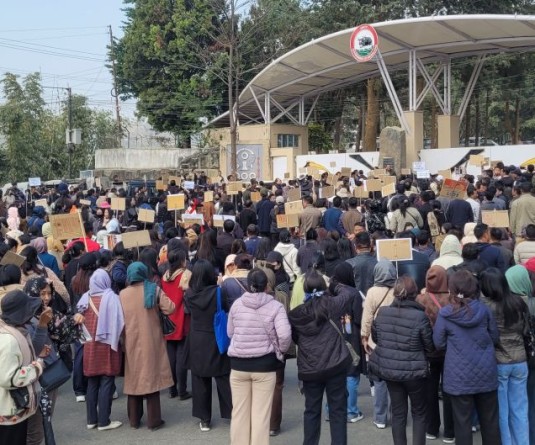
Dimapur, August 3 (MExN): The Framework Agreement (FA) is a meeting point of the Nagas and Indians and will bring the ‘two confronting peoples closer than ever’ and “provide for an enduring inclusive new relationship of peaceful coexistence of the two entities,” NSCN (IM) Chairman Q Tuccu said on Wednesday.
On the 7th anniversary of the signing of the Agreement, Tuccu maintained that the FA would be a “bridge between the two peoples” and nullifies the colonial culture of ‘forced marriage and forced union.’
According to Tuccu, 75 years ago on August 14, 1947, Naga national independence was declared and the same was informed to the United Nations and all the Embassies in Delhi, but the Indian and Burmese governments occupied the Naga homeland in violation of the International law, and the Naga people have been resisting this violation till date.
However, “The framework Agreement says that the unique history of the Naga independence and the unique situation is recognized by the Government of India,” he said. By unique history, it means the Nagas have never been a part of the Union of India and by unique situation, it means it is political and not a law and order problem of India, he further explained.
According to the copy of his speech which was issued to the media on Wednesday, the NSCN (IM) leader also spoke about how the FA states that “sovereignty lies with the people,” and mentioned a ‘competency’ which states: “In the matter of her own affairs as mutually agreed upon, Nagalim shall be sovereign.” In this connection, he contended that the Interlocutors of the Government of India are “making the Naga flag and constitution as issue,” but “It is known to all that the flag and constitution are component parts of the recognized sovereignty and unique history.”
Contrary to the past when the Government of India did not respect the Naga national identity, he maintained that “The Naga national entity is now recognized by the Government of India. The Framework Agreement speaks of this.”
Tuccu said that Nagas have never been a part of India either by consent or by conquest, by recounting how the Naga people refused to join the Union of India in 1950. “Acknowledging this fact, the government of India proposed ‘coexistence of the two entities sharing sovereign power,” he said, further explaining that it would mean coexisting with India without forgoing the national rights of Nagas.
At the same time, Tuccu noted that the Nagas and Indians “Cannot stay apart from each other because interdependent relationship among peoples and nations is the law of necessity.” He said that the diametrically opposite stands—the Nagas’ claim over the land and the Government of India’s claim that Nagalim is an integral part of India— had led the two peoples to ‘fight for decades.’
“Finally, the Government of India acknowledges that the Nagas are the owner of their own land and everything, be it on the surface and beneath,” he maintained.
Touching upon the British imperial rule, the colonial policy of ‘divide and rule,’ and the subsequent division of the Naga country by the Indian and Burmese states, Tuccu maintained that “the politics of integration of all Naga territories under one political roof has been one of the central points of the movement.”
“After a series of talks between the Government of India and NSCN, it was mutually agreed that the integration of all the Naga areas is the ‘legitimate right of the Nagas’ and that in keeping with the principle it will be finalized through political process at the earliest as mutually agreed upon,” Tuccu said.
In the meantime, he said, political institutions would be instituted in the Naga areas in the states of Manipur, Assam and Arunachal Pradesh in addition to the present Nagaland state, which will be transitional to the final goal, as agreed upon.
Further, the Government of India proposed Pan Naga Hoho, a cultural institution which embraces the Nagas of all Naga areas. It will deal with the culture, custom and tradition, literature, social and interest of the Nagas, which was mutually agreed, Tuccu stated.






